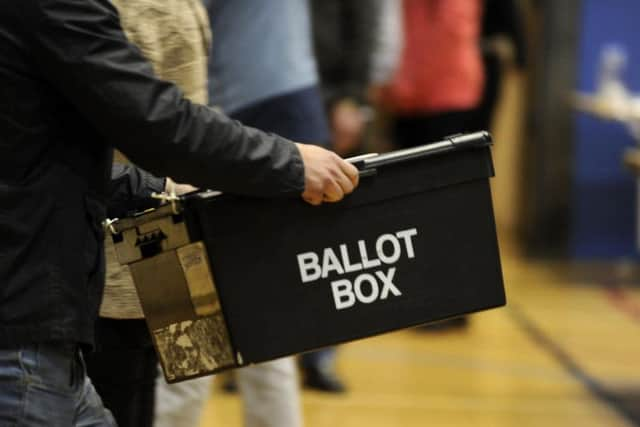Support for Labour slumps in key Yorkshire towns that could decide the General Election
The Centre for Towns think-tank says Labour trail the Conservatives in ex-industrial towns like Barnsley, coastal towns like Grimsby and university towns like Huddersfield after a sharp drop in support since the 2017 General Election.
It compared the way towns around the country voted in the 2017 General Election with the results of a YouGov poll of 11,590 respondents which took place between October 17 and 28.The think-tank's Ian Warren said that voters in marginal towns like Doncaster, Grimsby, Wakefield and Scunthorpe would go a long way to deciding who would win on December 12.


Advertisement
Hide AdAdvertisement
Hide AdHe said: "With the Conservatives piling up large leads in rural communities and Labour performing best in our largest cities, the remaining vote in our towns becomes the decisive battleground."
In 2017, the Conservatives had large leads in villages, communities, and small and medium sized-towns, while Labour were just two points behind in large towns and held a huge lead in the major 'core cities' like Leeds.
The latest data shows how the rise in support for the Liberal Democrats and Brexit Party has weakened support for the Conservatives and Labour, but the Conservatives now hold very large leads in villages, rural communities, small, medium and large towns.
The data also shows that Labour performed very well in university towns and ex-industrial towns in 2017, whilst the Conservatives did very well in coastal towns, commuter towns, market towns and new towns.
Advertisement
Hide AdAdvertisement
Hide AdBut Mr Warren wrote: "Labour now trail the Conservatives in every place type. Perhaps remarkably, the Conservatives now hold five-point leads over Labour in both ex-industrial towns and university towns whilst extending their leads in the other place types. The Lib Dems are now in second place in commuter towns and market towns."
In ex-industrial towns like Barnsley, Doncaster and Rotherham, Labour was polling at 50 per cent in 2017 but is now at 27 per cent, while Tory support has dropped from 37 per cent to 32.
Mr Warren wrote: "There is still over a month left in the campaign. Time for both Labour and the Conservatives to publish their manifestos and make their pitch to voters in our towns.
"We have been pleased that the major parties are now focusing heavily on the challenges facing our towns. We expect to see our towns referenced heavily in their policy offers to the electorate, and to play a leading role in the campaign."
Advertisement
Hide AdAdvertisement
Hide AdLast year, as part of the series A Tale of Two Yorkshires, The Yorkshire Post reported on the threat of a demographic time-bomb that threatens to “rip the heart out” of many towns and villages and distance them further from the region’s thriving cities.
Population projections show that the combination of an ageing population and the drift of the working age population to major urban centres seen in recent decades will continue to dramatically re-shape Yorkshire in the coming years.
Analysis by the Centre for Towns shows that towns and villages are forecast to become much older in the next two decades, increasing the dependency of residents on the working age population, while cities and bigger towns are expected to age at a much slower rate.
The think-tank’s Will Jennings, a political science professor at Southampton University, wrote at the time that this increasing polarisation has left voters in cities holding values and opinions increasingly at odds with those in cities – “two Englands” – which are driving the volatility of British politics.
Advertisement
Hide AdAdvertisement
Hide AdHe said: “As the populations of towns are getting older, they are typically not as diverse, their levels of education tend to be lower, their politics is kind of increasingly communitarian, identity based, with concern about immigration, conservative with a small ‘c’, and cities and large towns and university towns are young, they are more socially liberal, they are more educated,” he says.
“Policymakers just can’t cope with the fact that you have different places with different needs. And then the politics is increasingly polarised and conflictual.
“So my feeling about why our politics feels incredibly polarised and quite nasty and negative at the moment is partly because people are increasingly distant in terms of place.
“Place shapes how we see the world so I think if those trends continue you will essentially have two Englands, this idea that there are people living in different places experiencing different lives, having different identities.”
